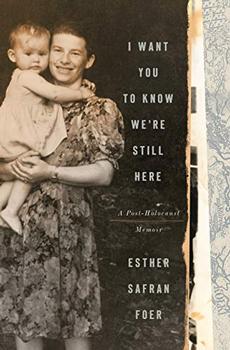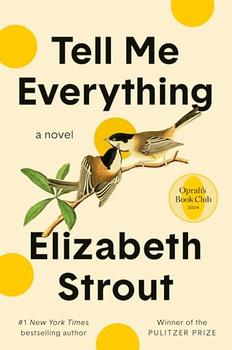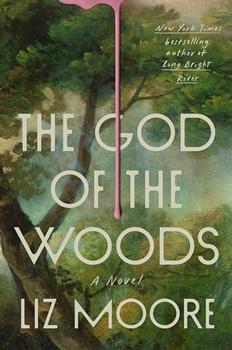Write your own review!
Esther L. (Newtown, PA)
Riveting Memoir
With thanks to BookBrowse for the opportunity to read and review "I Want To Know We're Still Here" by Esther Safran Foer. It is a deeply personal and riveting memoir by the author of her family's Holocaust history, those lost and those that survived.
Her tenacity and perseverance in researching this story involved her three sons, one of whom published the novel "Everything Is Illuminated", a fictional account of their story that started In Ukraine. Having read this novel, it gave added insight to her memoir. The author also mentions "The Holocaust by Bullets" by Father Patrick DuBois which chronicles the thousands of Jewish deaths by bullets in the killing fields of Ukraine.
This book is a wonderful addition to my Holocaust library. Esther also mentions Mi Polin,a Warsaw Judaica company whose tagline is "We make Judaism tangible". They travel all over Poland,where more than 3.5 million Jews lived before World War ll, to find traces of the mezuzah's that had been on the doorposts of the Jewish homes. A mezuzah is a rectangular case with a piece of parchment inside that holds a prayer for the house and its inhabitants. My mezuzah is from the city of Krakow and a visible reminder of all that was lost.
Lucy B. (Urbana, OH)
I Want You to Know We're Still Here
First of all, I don't think I can pronounce correctly many of the names of persons in the book.
It was a sad story, but happy in so many ways. I'm happy that Esther was able to find out about life in her past, what happened to her family, and to connect with relatives living now.
Also, not everyone who lived through the Holocaust and moved on were able to go back to their former homes, or former countries, and speak with some of the survivors or to see what their former home sites looked like in the present day.
Every time I read about the Holocaust, I feel sad for what those people went through that experienced it and those that did not survive it. I have to feel very fortunate that I did not have to be in that situation.
I thank the author for telling her family's story and for letting us see through her eyes what her experience was like by going back to her mother's homeland.
Esther was fortunate to still have her mother.
Robin M. (Newark, DE)
Slow to Start but Worth the Effort
I requested this book because my friend's father was one of the hidden children during WWII, and she was able to locate and visit the children who remember playing with her father.
I was excited to read this book, but the first 5 or 6 chapters took a long time to read. After that the reading was much easier and more interesting.
Overall, I enjoyed this book. It was worth the time and effort invested in reading it. I would recommend this book to people interested in the Holocaust and in WWII. It provides an interesting perspective that is not often presented in the literature or narrative on the subject.
Ariel F. (Madison, WI)
I Want You to Know
Foer tells the story of her journey to learn about her family's real history. A history that had been to horrific to share. Was she born in September or March? In what country? I found the book interesting but at times I got lost trying to keep names straight.
 Sandi W. (East Moline, IL)
'A Post Holocaust Memoir'
Sandi W. (East Moline, IL)
'A Post Holocaust Memoir'
It has been a while since I have read a book on the Holocaust. Although I am not of Jewish faith, each book seems to dredge up feelings and images that are simply overwhelming. Knowing that this was a memoir - dubbed as 'A Post Holocaust Memoir' - I went into it very slowly, while also reading a couple other books, to even out the drama and sadness of this one.
I found that I both liked and disliked this book. There were plenty of sections that delved into the lives of Foer's family - I especially liked the parts referring to her Grandmother. But there were also parts that just seemed out of place - such as her repeated mentioning of her sons achievements.
I understand that having to ferret out your past history and family would take a lot of resilience and research. And I admire Foer for what she undertook, especially under the auspice of the Holocaust. However, I believe this book may have been better had her son written it instead.
MaryJane B. (Lynch Station, VA)
I Want You To Know We're Still Here
This post-Holocaust memoir has both facts about holocaust survivors as well as personal family history. Esther Safran Foer has taken on the burden of becoming the memory keeper of all of her ancestors who were lost in the holocaust. She's passed this obsession of hers to her children. These traumatic memories are passed on from generation to generation. Much of the book is the result of the intense research she has done to find her family's roots especially her father's story. She traces the difficult journey of her parents' escape from the Nazis in Poland, to a DP camp, to their arrival in America.
Although I found the topic interesting, I felt there was too much detail that applied only to the author's family. I kept wondering who the audience was for this book. Was it survivors of the holocaust or the Safran family searching for their roots?
Ilene M. (Longmont, CO)
Not Great
I read many, many books about the Holocaust, both non-fiction and historical fiction. The accounts are always disturbing. Some authors present the information in beautiful and compelling prose. In my opinion, this author did not do a great job. I understand her need to search for the truth about her family, but I do not feel that her writing did a great job in capturing her feelings. Some of the things that she wrote felt out of context. I also felt that she leaned to heavily on the writings of her son, Jonathan Safran Foer. I would not recommend this book.
Chris H. (Wauwatosa, WI)
Hard to rate
This book relates a very important part of history and a personal one at that. I have trouble rating it for that reason. The story is important, therefore my rating of 3-average. However, I found the readability challenging, therefore my rating of 2-poor. The challenge of reading this book is that the author talks about too many people and their relationship to one another hard to keep track of. She often refers to her son Jonathan and his book without any background, assuming all readers know what she is talking about. It was about two-thirds into the book that she talks about what is most interesting and what a reader could understand. I think perhaps the author should have included some visual references, perhaps a family tree of sorts, maybe a rough map of her lost homeland. The story itself is important and compelling. The way it is written is where the difficulty, for me, makes my rating of it hard.




